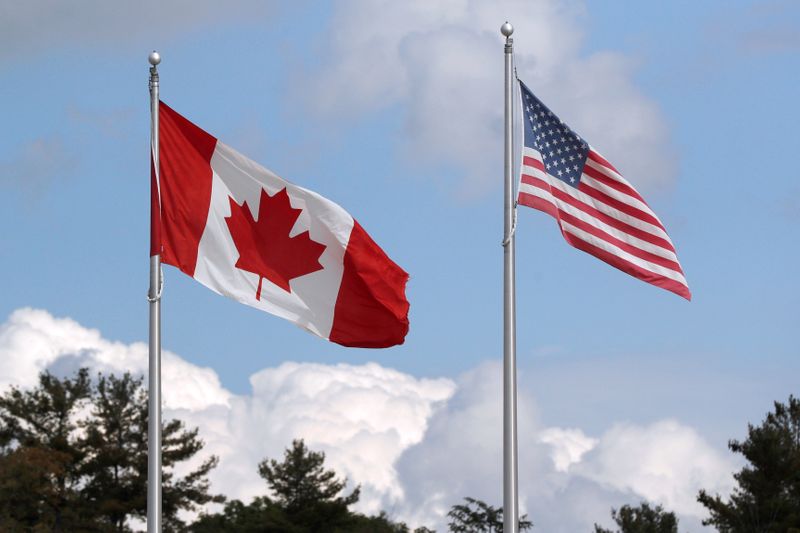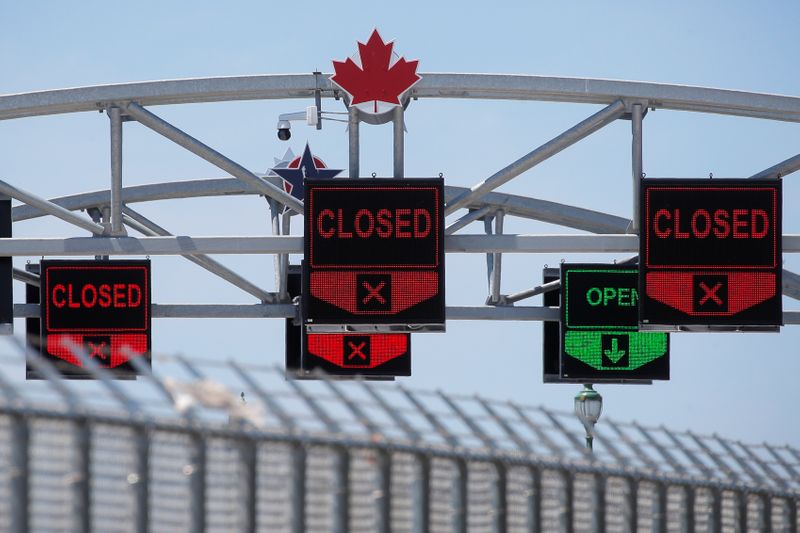WASHINGTON (Reuters) -U.S. land borders with Canada and Mexico will remain closed to non-essential travel until at least Jan. 21 with coronavirus cases spiking to record numbers, U.S. and Canadian officials said on Friday.
The decision means it will be up to the administration of President-elect Joe Biden when he takes office on Jan. 20 to determine when it will drop the restrictions, first imposed in March to control the spread of the virus. Acting U.S. Homeland Security Department Secretary Chad Wolf said on Twitter the latest one-month extension was to “continue to prevent the spread of COVID.”
Canadian Prime Minister Justin Trudeau wrote on Twitter on Friday that “to keep Canadians safe, we’ve extended the measures currently in place at the Canada-US border by another 30 days.”
Canada has shown little interest in lifting the restrictions. U.S. officials had previously sought some revisions especially for residents along the Canadian border.
The virus is raging in the United States and Canada’s second wave is worsening as the holidays approach.
The United States recorded more than 200,000 COVID-19 cases per day for four straight days, according to a Reuters tally of official data. A record 3,253 U.S. deaths were reported on Wednesday.
The United States has reported about 15.6 million cases and 292,642 deaths since the start of the pandemic. By contrast, Canada has had about 442,000 confirmed cases with just over 13,100 deaths.
Statistics Canada said in October that August visits to Canada by car by U.S. travelers were down 95.7%, and the number of U.S. travelers to Canada by plane fell by 97.9%.
U.S. President Donald Trump has been considering lifting restrictions that ban most non-U.S. travelers from the United Kingdom, Ireland, Brazil, and the 26 countries in the so-called Schengen border-free area of Europe.
Reuters first reported on Nov. 25 the White House was considering rescinding the European and Brazilian entry bans.
The plan won the backing of White House coronavirus task-force members, public health and other federal agencies.
Trump may still opt not to lift the restrictions, given the high number of infections in Europe. One potential hurdle is that European countries are not likely to immediately allow most Americans to resume visits, officials said.
(Reporting by David Shepardson, Editing by Richard Chang and Grant McCool)


























